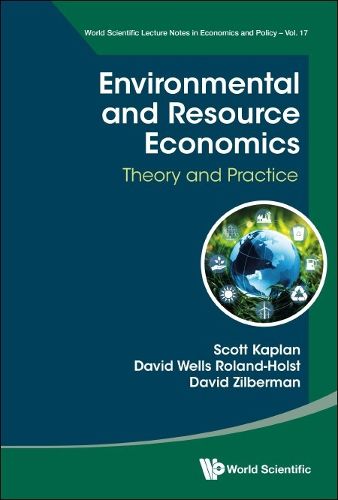Readings Newsletter
Become a Readings Member to make your shopping experience even easier.
Sign in or sign up for free!
You’re not far away from qualifying for FREE standard shipping within Australia
You’ve qualified for FREE standard shipping within Australia
The cart is loading…






Modern society is currently facing a cascade of environmental crises. Moving forward, it will be the job of current and future generations to develop sound and creative approaches to addressing them. This book attempts to provide insight into the ways in which society can confront modern agricultural, environmental, and resource challenges. In particular, it provides an economic lens with which to examine and confront these issues. The first part of the book introduces a general economic framework that can be used to analyze these issues. Subsequent chapters rely on this framework to introduce and explain specific concepts in agricultural, environmental, and resource economics, including (but not limited to) non-renewable and renewable resource management, pesticide use, and climate change. The book develops quantitative tools that the readership can use to analyze and better understand the complexities of these challenges. Each chapter includes specific applications, and an accompanying Appendix includes a longer list of practice problems that can be brought into courses as exercises.Resources are available to instructors who adopt this book. More details at www.worldscientific.com/worldscibooks/10.1142/13304-sm
$9.00 standard shipping within Australia
FREE standard shipping within Australia for orders over $100.00
Express & International shipping calculated at checkout
Modern society is currently facing a cascade of environmental crises. Moving forward, it will be the job of current and future generations to develop sound and creative approaches to addressing them. This book attempts to provide insight into the ways in which society can confront modern agricultural, environmental, and resource challenges. In particular, it provides an economic lens with which to examine and confront these issues. The first part of the book introduces a general economic framework that can be used to analyze these issues. Subsequent chapters rely on this framework to introduce and explain specific concepts in agricultural, environmental, and resource economics, including (but not limited to) non-renewable and renewable resource management, pesticide use, and climate change. The book develops quantitative tools that the readership can use to analyze and better understand the complexities of these challenges. Each chapter includes specific applications, and an accompanying Appendix includes a longer list of practice problems that can be brought into courses as exercises.Resources are available to instructors who adopt this book. More details at www.worldscientific.com/worldscibooks/10.1142/13304-sm